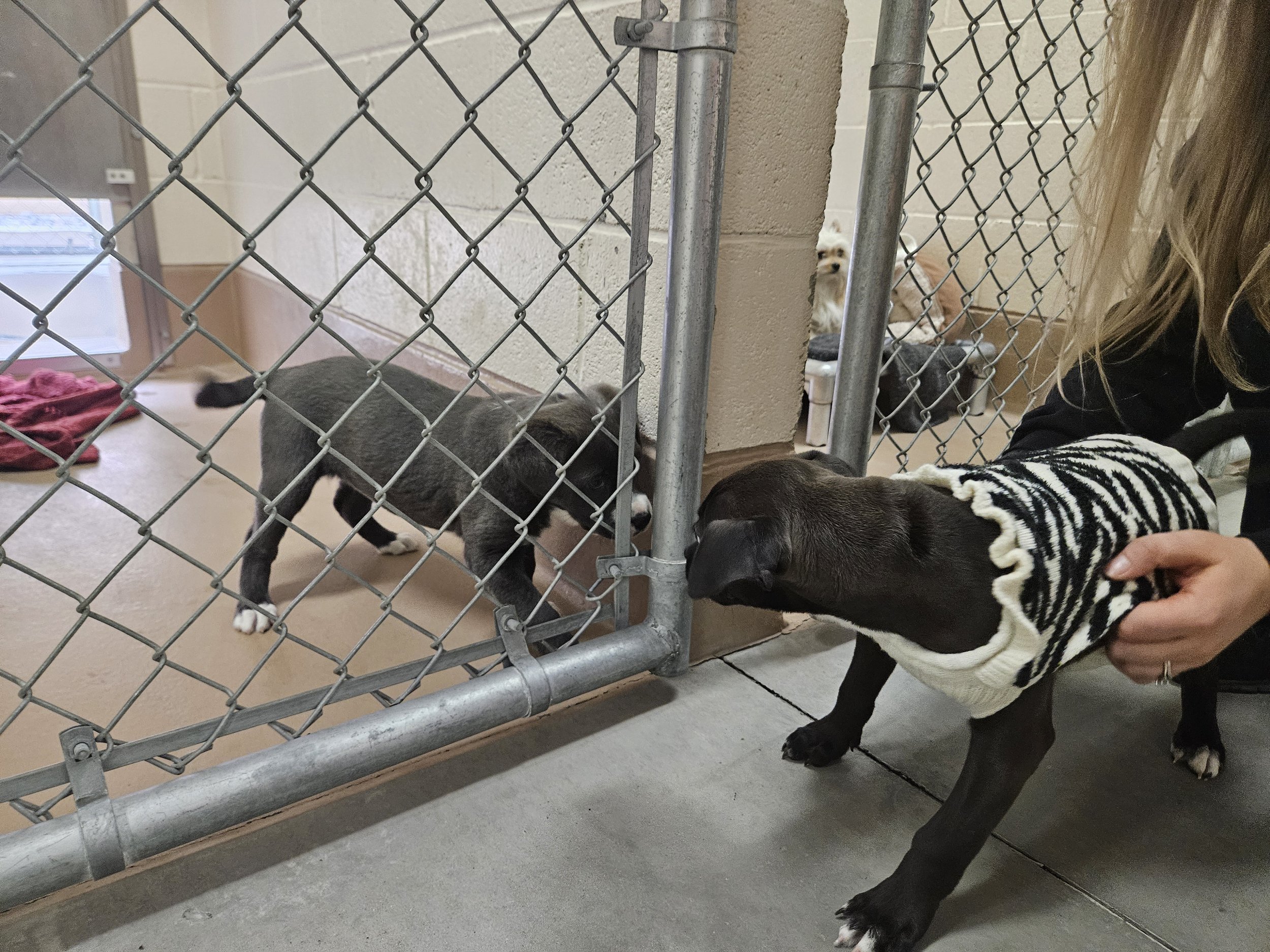While there are numerous complexities to finding the “right dog,” it truly comes down to the owner’s commitment. At the end of the day, these animals rely on their caretaker to provide food, shelter, and all their other needs.
For Washoe County Regional Animal Services Program Coordinator Quinn Sweet, there needs to be a “little more personal responsibility” when it comes to pet ownership. In addition to feeding and housing the pet, it means being prepared for the worst case scenarios.
The show chairman of the Reno Kennel Club Jack Riggsbee spoke on wanting to see more due diligence. “‘My biggest thing is, I wish people out in the general public who want a dog would research the breed, know what the breed is supposed to be noted for, and go after the one that they really like, or think they would really like.”
In case of problems and challenges, owners and prospective ones aren’t alone, though. The WCRAS has a variety of resources available to owners, which Sweet says many Washoe pet owners don’t realize.
For example, WCRAS offers entirely free pet microchipping, which can improve the chances of reuniting lost pets. During the 2023 fiscal year, 43% of stray dogs and cats were returned to owners because of a microchip - 3428 dogs in total.
“You just have to walk in and ask for one, and we’ll do it right then and there,” Sweet said. “That helps us. That helps the pets. It’s a beautiful system.”
Sweet also reminded pet owners in Washoe to license their pet. As previously mentioned, the data on the county’s top breeds only represents licensed dogs. She believes approximately 30% of the dogs in the county are registered with WCRAS, which is actually a legal requirement in the county.
Failing to register a dog through the WCRAS can result in a fine of $100 to $400. WCRAS does offer “fix-it tickets” to violators, waiving their fines if they register their dog and get them up to date on their rabies vaccinations. Rabies vaccinations are another requirement in the county that can fly under owners’ radars.
“We always try to work with people to have the best outcomes for their animal,” Sweet said. “And that’s all we want - the best outcome for all the animals in our community.
More on licensing dogs through the WCRAS can be found on its website.
Rebecca Goff, the Nevada State Director of the Humane Society of the United States (HSUS) “highly recommends” doing research into the needs of the animal and having a discussion with everyone in the household before getting one. Also, make sure everyone is on the same page about bringing an animal into the home - “that should not be a surprise.”
Secondly, she points out the importance of patience with an adopted dog. While shelters “do their best” to showcase a dog’s personality, there is “no way for a shelter to truly know” how it will behave at home.
“They say it takes about three months for a dog to come out of its shell and display its full personality after they are adopted,” Goff stated. “Your new dog might be super stressed initially, but could turn into the most mellow, chill pup after they have time to settle in and build trust. I would advise patience after adopting a new pet.”
Goff added that, sometimes, shelter pets don’t always “work out.” This can be caused for a number of reasons, whether it be due to a lack of research, incompatibility with the home, or circumstances outside of the owners control. As mentioned earlier, it’s important that owners be aware of their options in any case.
Whether it be returning a dog to the breeder or to the shelter, it’s safer than simply abandoning it. “It’s not just the animal, it’s the people,” she stated towards the end of our interview.
People have the power to make the decision to get a dog, while the animal has to follow. It’s up to the humans to make the conscious decision: whether they’re getting a dog purely as a disposable gift, or if they’re welcoming a new member to their home.
Next week, the Nevada Humane Society and Washoe County Regional Animal Services will host a town hall event Feb. 28 with a public Q&A at their building on Longley Lane, with a wide range of issues to be addressed included the worrisome local increase in owner-surrendered animals.
